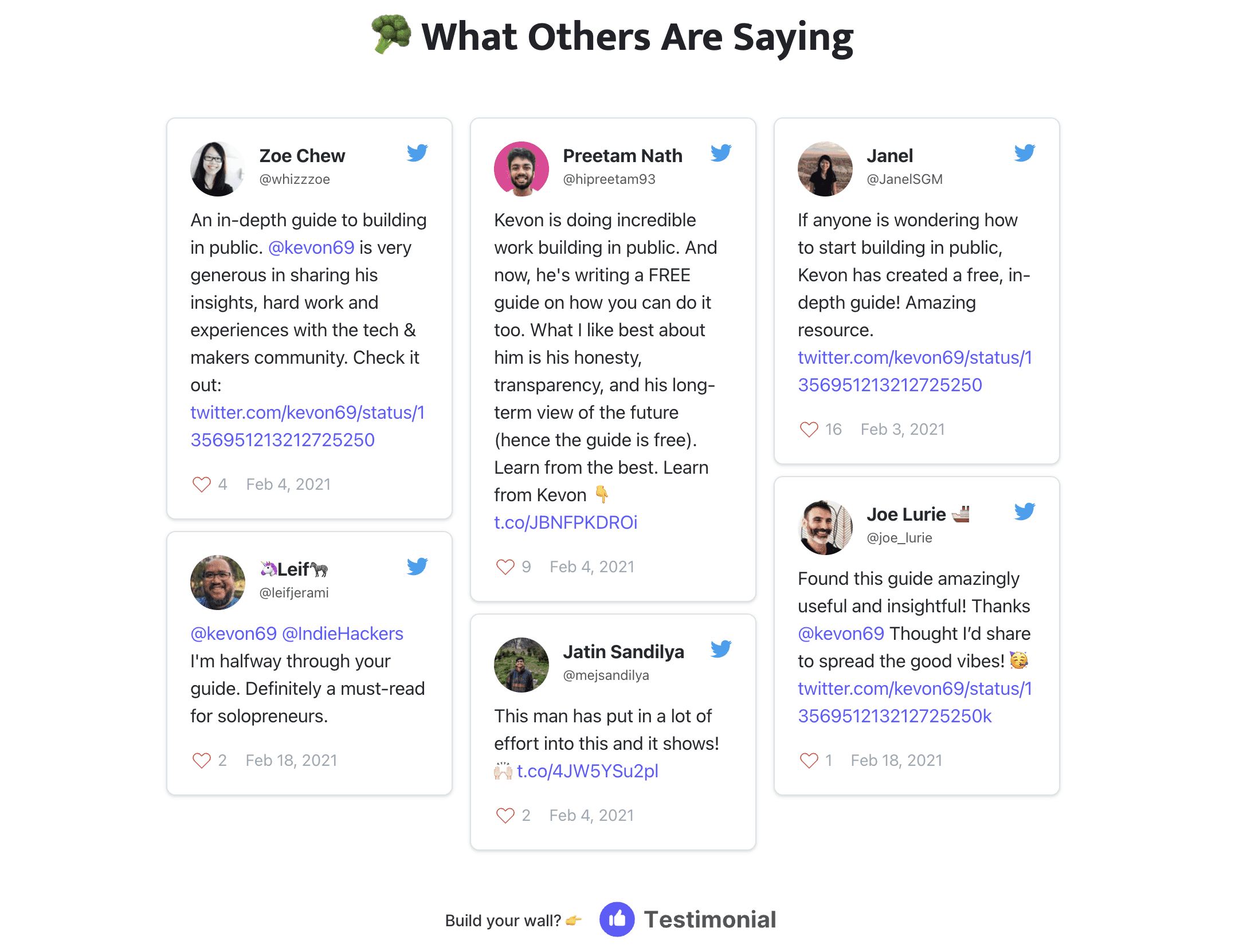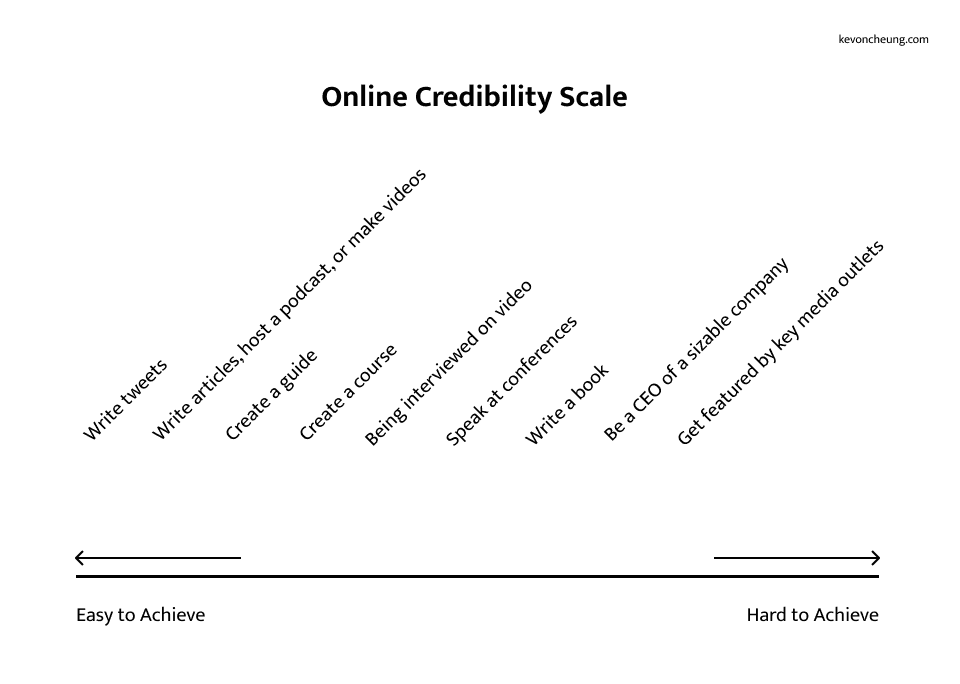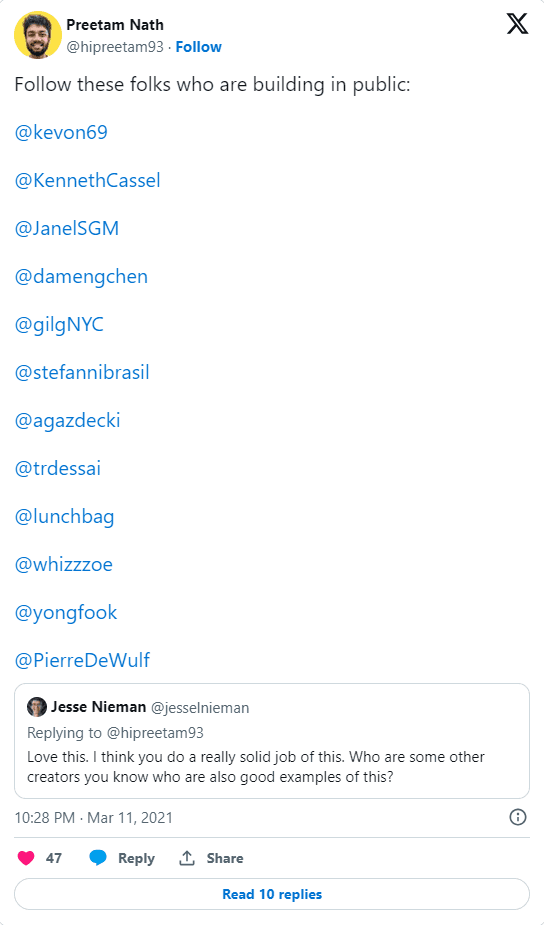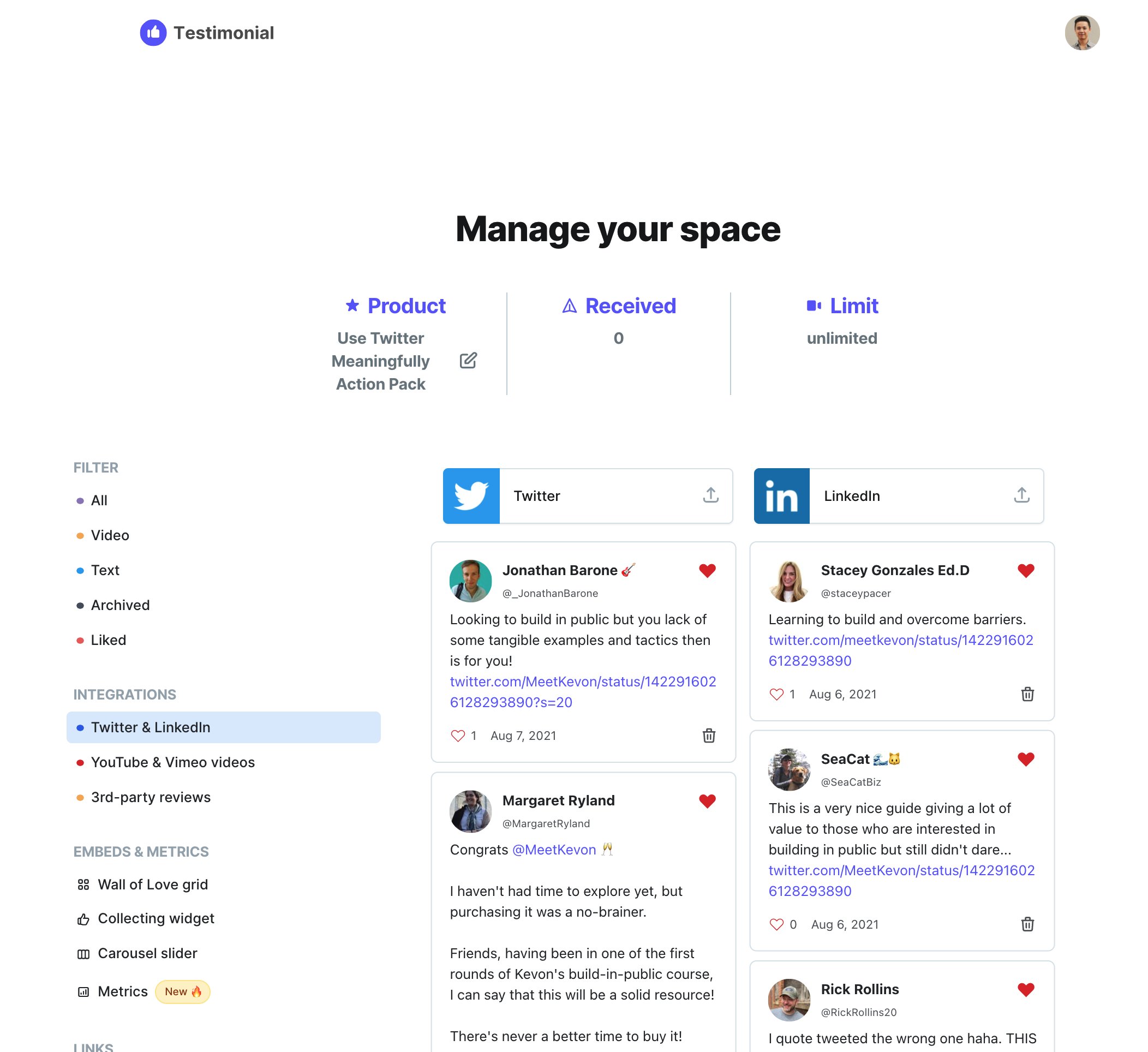How to build credibility online

Let's say there are two gardeners: John and Jenn.
Both are capable of maintaining your lawn, how would you choose which one to hire?
It is likely not how they look. Not how they talk. Not how many years of experience they have.
It comes down to one thing.
Who do you trust more to do an excellent job?
If Jenn has a website with recommendations from happy customers and her story is featured in the Gardener Magazine, and John has nothing but a business card, you're going to instantly raise Jenn's credibility level and choose her for the job.
Why's that?
Our brain is wired in a special way that we make decisions based on credibility, not perceived value. We build up trust based on the information we see and let that influence our decisions.
Once the credibility is established, whatever a person says or does, it is always better.
This is why testimonials and social proof have become a big part of the online world. I put up this wall by Testimonial on my homepage to let people instantly find out whether I'm trustworthy.

This is what I have on KevonCheung.com's homepage.
But, the important question is:
When tech founders and creators are just starting out, how can they effectively build up their online credibility? How should they think about it?
Break it down into baby steps
This is my way of breaking down how human perceives credibility.
If it is very hard to achieve one thing, and you achieve it, we tend to think you're qualified to get there. And that makes you more trusted.
Here are some examples.
It "must be" extremely hard to meet with the President. If Jessica has done that, she must be a qualified person to meet with the President.
Or it "must be" difficult to get on Tim Ferriss' podcast. If Dave is on the show, he must be a qualified person to get on the show.
I use quotations on "must be" because it is all about how hard we perceive the task to be. Everyone could have a different level of difficulty. For example, if your uncle happens to know Barack Obama, then it is not surprising that you could easily get a photo with the former President at a country club.
So every achievement is placed on a scale from easy to achieve to hard to achieve. Achieving closer to the easy side means you'd gain a tiny bit of credibility, and closer to the hard side means a ton of credibility.
If we put this concept into the online world, the scale looks like this:

These are the most common achievements for tech founders and creators. Can you point out where your credibility level is right now?
To be able to achieve something on the harder side of the scale, you need credibility from things that come from the easier side.
If your dream is to become a book author and you haven't published any articles or done any interviews, your chance of success is slim because you don't have credibility.
But if you have an active Twitter account with 5,000 followers and have written dozens of articles on this topic, you've built up your credibility to be qualified to launch a book.
This is exactly how I approached my journey to become a writer and content creator 4 months ago.
I started writing tweets and articles that got people's attention. Then I created a free definitive guide on #BuildingInPublic which was read by 2,100 people in the first 3 days. With that, I have an email course to help people make real Twitter friends. I then start to speak on podcasts about #BuildingInPublic, storytelling, relationship building, etc.
Remember this.
Work your credibility up by achieving things on the easy-to-hard scale, one baby step at a time.
Get Endorsed by Real People
The baby-step approach gives you a roadmap to increase your own credibility.
But we live in a world that is run by people, so getting affirmation from real people helps to make big leaps in lifting your credibility.
When someone endorses your name or work, it is a strong signal of trust because they're associating their reputation with your reputation.
And this is not something we do for anybody.
More importantly, this person's credibility level spills over to your credibility level. For example, if Elon Musk says you're the man to watch in the micro-SaaS space. Then you get his credibility level, which is a huge jump.
I was endorsed by Preetam Nath who has 5,000+ followers and is an influencer in the SaaS space. This helped me a lot.

Once you get that going. When you can get different respected people to endorse you regularly, you're establishing yourself as "somebody".
To get an endorsement, it is almost always based on strong and mutual relationships.
Building an audience has been a popular trend recently. Everyone is busy growing their social following. Most beginners focus on the follower count, while people who deeply understand how this works know that it is based on meaningful relationships and interactions.
Online success depends on online relationships. And to have those, you have to understand how online relationships work and the techniques to craft them.
I created a free email course, Making Twitter Friends, to share my techniques for building meaningful online relationships.
Accumulate evidence
Unless you're a celebrity with a manager, no one is going to promote you, except yourself.
You want to take every chance to capture positive things people say about you. It could be a tweet, a post, an email, a written note, or anything.
Do yourself a favor. Be your own promoter.

I love Testimonial.to - easy to use and does the job!
So far, Testimonial.to is the best tool for capturing social proof (example here & here). You can use this link to get 15% off.
If you're the type of person who sees this as bragging, then do this with me.
Think of that one person online you admire a lot. What is her online personality like? Does she post endorsement notes given by other people?
Chances are she is genuine and kind and you absolutely enjoy her presence. And chances are she occasionally posts endorsements on her social account.
And you still like her. Why?
As long as you're humble in your everyday life, one or two brags in a while aren't killing your reputation. They're happy you want to share with others. Just don't overdo it.
Faking it
Can you boost your credibility artificially? Yes. Almost everything in our world can be faked.
You could pay someone to write a book for you. You could pay to get featured on most media. You could create a new company and call yourself the CEO.
The truth is most people do it and it is part of the game of our society. It is a rat race to see who can get more credibility quickly.
But ... if people can fake it, people can also find out it's fake.
So, my advice is to not let this influence how you think about building your credibility. Take no shortcuts.
If you use the method above and plan your baby steps, work hard to achieve harder and harder things, I can guarantee you that you'll have strong credibility and it will be long-standing.